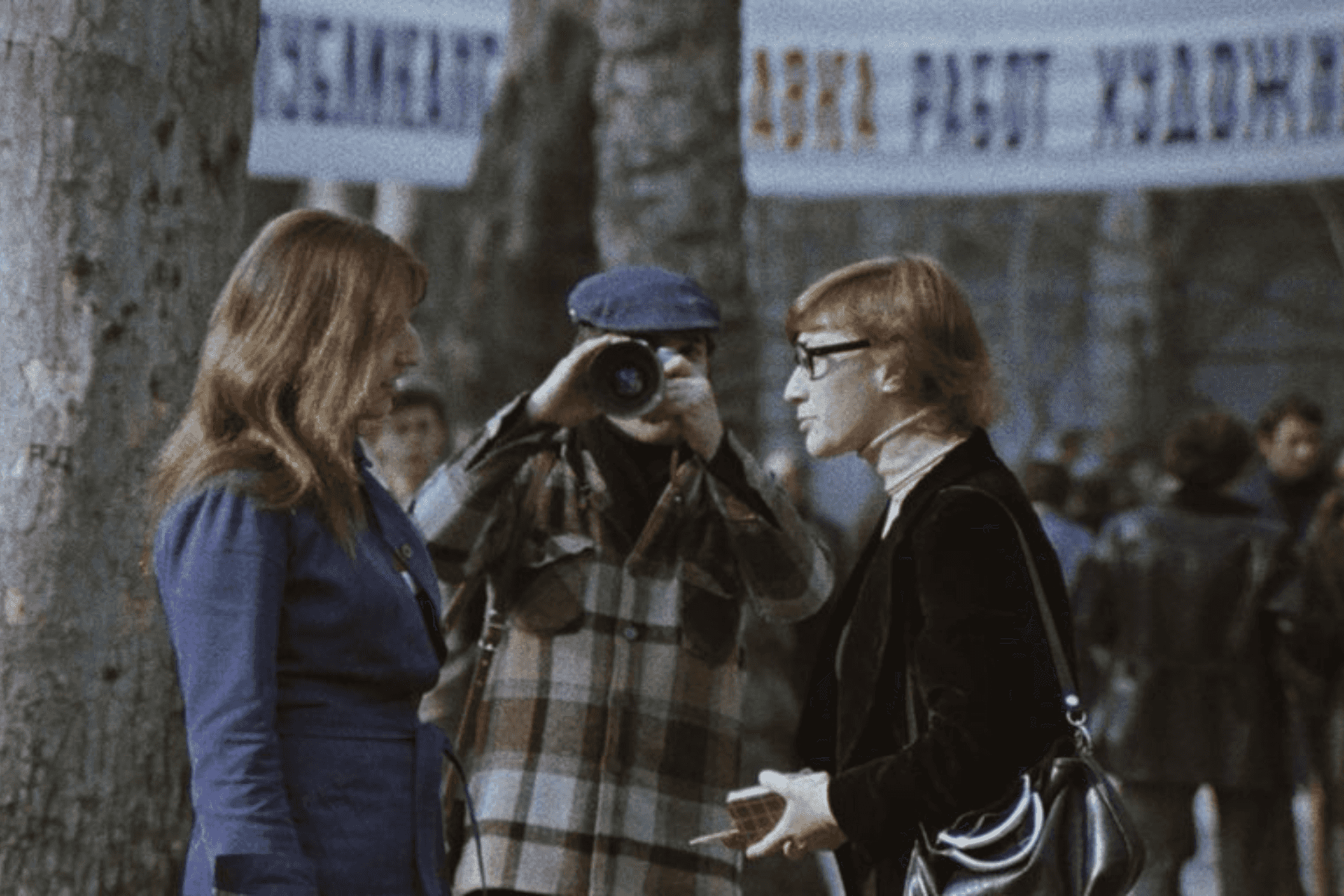★★★★★
Eldar Shengelaia’s 1983 film, one of the sharpest satirical critiques of Soviet bureaucracy in existence, is a cinematic masterpiece
Blue Mountains, or Unbelievable Story is a slow-burning, deadpan comedy that exposes the absurd inertia of the late Soviet system and even foreshadows its collapse.
The film follows the passive young author Soso (Ramaz Giorgobiani) who brings his manuscript — Blue Mountains, or Tianshan — to his overstaffed, dysfunctional publishing house. Although the manuscript is accepted politely, it quickly disappears into a void of endless departmental handoffs. No one reads it; instead, it gets trapped in ritualistic office procedures and ceaseless meetings. Discussions never go beyond the book’s title.
Ironically, the only person who genuinely reads the manuscripts is a maintenance worker, tasked with fixing the building itself, which is literally falling apart. Cracks appear on the walls, and people frequently get stuck in elevators.
The film brings the strong sense of mechanical repetition, with endless loops of paperwork and trivial arguments. The camera refuses easy cuts, letting awkwardness accumulate. This deliberate pacing forces viewers to sit with the characters’ discomfort.
The film’s strongest asset is its dialogue — deliberately slow, dry, and often absurd. Visual gags abound, such as a manager obsessively demanding the removal of a massive picture of Greenland behind his desk, fearing it will fall on him. In the end, the picture does fall, along with the building itself.
Blue Mountains is widely seen as an allegory for the wider Soviet system, where everyone seems busy, yet nothing is accomplished. It immerses viewers in a late-Soviet mindset, where bureaucracy functions both as social language and survival mechanism. Policies often contradict logic, priorities shift without explanation, and people become adept at ignoring absurdities and finding workarounds — paradoxically keeping the system running. In this way, the film quietly foreshadows the eventual collapse of the Soviet Union, represented symbolically by the building’s collapse at the end.
The haunting, minimalist score by acclaimed Georgian composer Gia Kancheli plays a crucial role, preventing the satire from feeling purely comedic and adding a layer of melancholy.
The film’s deadpan surrealism is deeply unsettling — especially as the characters move into a new building at the end, unchanged in behaviour. However, the satire was subtle enough to allow the film’s production and even earn it the USSR State Prize.
Film details: Blue Mountains, or Unbelievable Story (1983), directed by Eldar Shengelaia. Available to watch on Klassiki.











